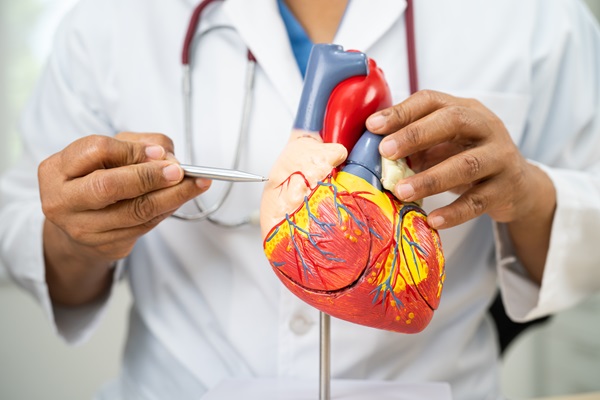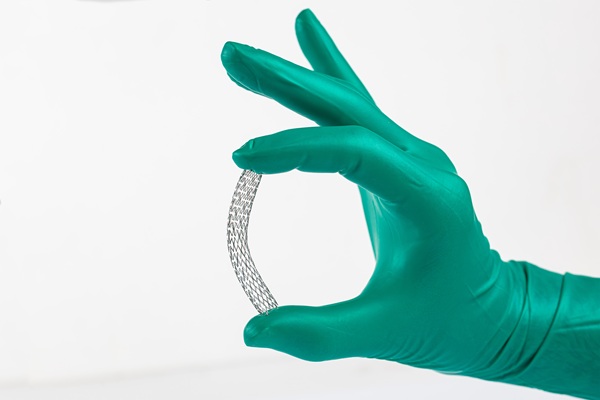Navigating Heart Failure Treatment: A Comprehensive Guide

Heart failure results from damage to the heart that has developed over time and cannot be cured. However, heart failure treatment is available to improve or manage symptoms and overall quality of life. The following comprehensive guide can provide a clear and concise overview of available treatments, preventive measures, and a multidisciplinary approach to managing heart failure.
Heart failure treatment
Heart failure treatment typically involves a combination of medications, device therapy, lifestyle modifications, and, in some cases, surgery. Here are the primary heart failure treatments used:
Medications
Cardiologists can use a combination of medications to treat heart failure. The specific type of medicine used during heart failure treatment will depend on the cause of the patient's symptoms. These medications may include:
- Angiotensin-converting enzyme (ACE) inhibitors. ACE inhibitor medications can help relax blood vessels, lower blood pressure, improve blood flow, and reduce strain on the heart.
- Angiotensin II receptor blockers (ARBs). These medications have similar effects to ACE inhibitors but have fewer side effects, making them easier to tolerate.
- Beta-blockers. These reduce the patient's heart rate and the force of contraction, easing the workload on the heart and helping it work better.
- Diuretics. Also known as water pills, diuretics help reduce fluid buildup in the body, relieving swelling and congestion.
- Digoxin. Also called digitalis, helps strengthen the heart muscle contractions, better pumping the blood and slowing down the heart rate.
A cardiologist will monitor the usage of the medication and change the doses as needed. This is more common when the patient has started a new medicine or when the condition worsens.
Device implants
In some cases, device implants may be necessary to help control heart rhythms and prevent sudden cardiac arrest. These devices include:
Pacemaker
Also known as a cardiac pacing device, a pacemaker is a small battery-powered device that prevents the heart from beating too slowly. The cardiologist places it under the skin near the collarbone.
Implantable cardioverter-defibrillator (ICD)
An ICD is a device similar to a pacemaker. It is implanted under the skin in the chest with wires that lead through the patient's veins and into the heart to prevent complications of heart failure and monitor the heartbeat.
Cardiac resynchronization therapy (CRT)
This device is used for heart failure in people whose lower heart chambers are not pumping in sync. CRT uses electrical pulses to signal to the chambers to squeeze more coordinatedly, improving blood pumping out of the heart.
Ventricular assist device (VAD)
A VAD helps pump blood from the heart's lower chambers to the rest of the body. This treatment is often recommended temporarily for those waiting for a heart transplant or as a permanent treatment for those who are not candidates for a heart transplant.
Surgery
When other treatments are not enough to address heart failure, a cardiologist may recommend to treat the issue causing the heart failure, such as coronary bypass surgery or heart valve repair and replacement. Coronary bypass surgery involves taking a healthy blood vessel from other parts of the body, typically the leg, arm, or chest. Then, this vessel is connected below and below the blocked arteries in the heart. A new pathway improves the blood flow to the heart muscle.
Meanwhile, in cases where the damaged heart valve causes heart failure, the patient may need heart valve repair or replacement. The surgery needed will depend on the cause of the heart valve issue. The two most common surgeries are minimally invasive and open heart surgery.
Heart transplants
In severe cases of heart failure and more conservative treatments have not worked, some patients may need to undergo a heart transplant. This means they need to replace their hearts with a healthy donor's heart. However, not everyone is an eligible candidate for a transplant. A team of healthcare providers will work with the cardiologist to determine whether the patient can benefit from this procedure.
Lifestyle modifications
Effective heart failure treatment extends beyond medication and surgical procedures. Lifestyle changes like eating a nutritious diet and regular exercise can help manage one's weight, reducing the burden on the heart and alleviating heart failure symptoms. Additionally, quitting smoking or consuming excessive amounts of alcohol habits can improve heart health and the patient's overall prognosis.
Get the heart failure treatment you need
Navigating heart failure treatment can be challenging. However, the right information and guidance can help you manage your condition. Call our Boynton Beach office to learn more about our services or schedule a consultation.
Request an appointment here: https://boyntonbeach.floridapremiercardio.com or call Florida Premier Cardiology at (561) 229-1411 for an appointment in our Boynton Beach office.
Check out what others are saying about our services on Yelp: Heart Failure Treatment in Boynton Beach, FL.
Recent Posts
Coronary stent placement is a treatment for coronary artery disease, a buildup of plaque (fat and cholesterol) around the heart's arteries. Along with angioplasty, a stent helps restore blood flow to the heart, relieving symptoms such as chest pain and shortness of breath and helping prevent a heart attack. The following overview of coronary stent…
Heart disease treatment encompasses a range of interventions, from lifestyle changes and medications to surgical interventions. Individuals can manage their condition and improve their quality of life by working with a cardiologist. Successful heart disease treatment starts with the patient having the information they need to make informed decisions about their health.Also known as cardiovascular…
A heart specialist is a doctor specializing in diagnosing and treating cardiovascular conditions. Patients may be referred to one of these doctors for several reasons, from diagnosing a heart health issue to getting cleared for surgery. However, seeing a heart specialist is even more crucial for those either experiencing the signs of heart disease or…
Cardiologists perform angioplasty to open blocked arteries, specifically those caused by coronary disease. This minimally invasive alternative to open heart surgery can restore proper blood flow to the heart and often reverse the fast track to a heart attack. However, learning when one is necessary is crucial for treatment success.Coronary artery disease (CAD) is a…


